Annual Report - 2016-2017
Overview
What an exciting year for the Bennion Center! The new assessment plan was implemented and for the first time the Center has an understanding of the depth and breadth of student service and the make-up of students providing that service. While the Center has always had number of hours and numbers of students, the new assessment has helped staffers determine how that service impacted students in terms of four civic competencies: skills, awareness, values and habits. The goal of this new strategy was to help measure the effectiveness of Center programs on creating a life-long service paradigm. Also, by understanding more about the types of students involved in service, staff can also get a better understanding of who isn’t at the table. Outreach can be tailored more effectively to reach students who are missing community engagement opportunities.
Preparations began in 2016 for the Bennion Center’s 30th anniversary, which formally kicks off at Legacy of Lowell 2017. Students and staff combed through annual reports and photo albums in anticipation of the big event. What they found was amazing: more than three million hours of service contributed by more than 162,000 students! The faces have changed during those decades but the heart of the Bennion Center remains the same – centered on service that changes lives. Thank you for helping to make it all possible!
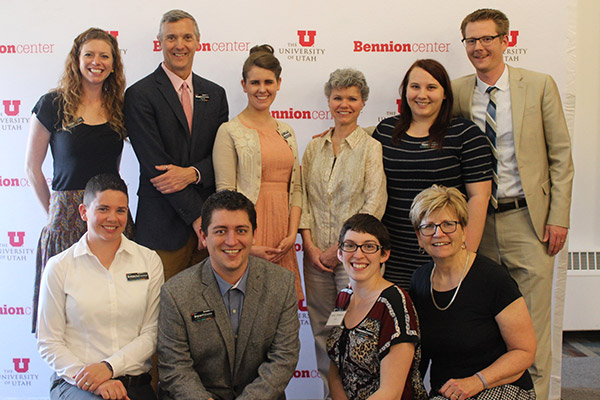
“I realized that through service we care for individuals and by caring for individuals we care for the community. I realized that the impact we make day by day aren’t world altering, aren’t shared on the news and at times, many people seem to not want to participate but by being a part of it all, it makes a difference to at least one person and that’s what is key.”
– Student
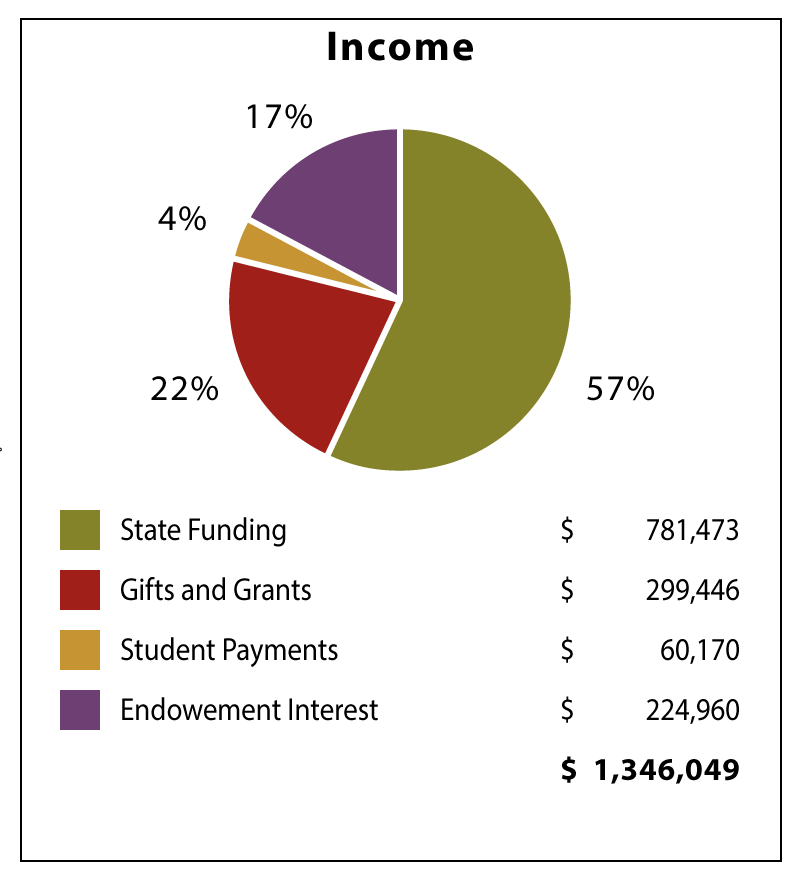
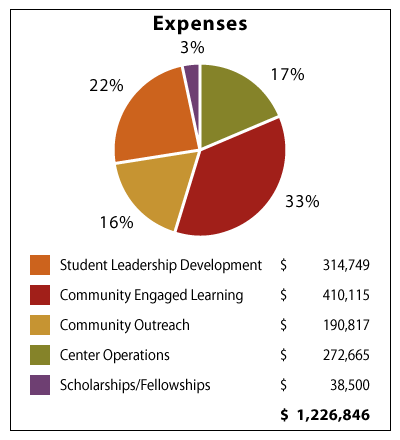

Legacy of Lowell
647 Students; 1,918 Hours of Service; 15 Community Partners; 14 Locations
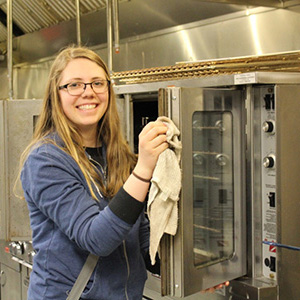 For many students, involvement at the Bennion Center begins each fall with the annual
Legacy of Lowell day of service. This year more than 600 volunteers turned out at
Glendale Middle School to give almost two thousand hours of community service. Bennion
Center students partnered with 15 community agencies on projects that included clean
up at Bend-in-the-River nature area and Maliheh Free Clinic, as well as serving at
Utah Food Bank, two social justice gardens, Habitat for Humanity, six area homes and
ten on-site projects at the school. For many students, Legacy of Lowell is their first
exposure to the Bennion Center and volunteerism in the Salt Lake valley.
For many students, involvement at the Bennion Center begins each fall with the annual
Legacy of Lowell day of service. This year more than 600 volunteers turned out at
Glendale Middle School to give almost two thousand hours of community service. Bennion
Center students partnered with 15 community agencies on projects that included clean
up at Bend-in-the-River nature area and Maliheh Free Clinic, as well as serving at
Utah Food Bank, two social justice gardens, Habitat for Humanity, six area homes and
ten on-site projects at the school. For many students, Legacy of Lowell is their first
exposure to the Bennion Center and volunteerism in the Salt Lake valley.
“Being a student co-leader in the Legacy of Lowell was not only an honor but also incredibly transformative for me. As a student leader and my first time helping plan the Legacy of Lowell, I didn't imagine I would have much of an impact. I figured my ideas were not going to be considered because I was not involved in the event before. My experience with the planning committee was quite the opposite. I felt like I contributed and that I had a purpose amongst my distinguished colleagues. When the actual event took place, I was amazed at how many people showed up and how enthusiastic everyone was. So many people were smiling and engaging with friends in community service. I felt proud that I was able to help put together a project that brought so many individuals together for a meaningful day.”
– Student
“This event, along with the other Saturday Service Projects, meant much more as I was involved in the planning aspect. I hope as I move onto graduate school and further in life, that I make service a continued priority in my life and to also make it easy and fun for other members of my community.”
– Student
Saturday Service Projects
1,063 Students; 2,938 Hours of Service
Legacy of Lowell is just one part of the work performed by students and staff working on the Bennion Center’s Community Outreach program. The team organized four other Saturday Service Projects:
- Palmer Court transitional housing
In November students joined forces to help spruce up the library at Palmer Court. This site is also the home of the student-directed book club. 195 hours later, the library and community kitchen areas were clean and welcoming and students …. - Martin Luther King day of service
Six community partners benefited from the hard work of students who braved the snowiest day of the year and spent a total of 373 hours delivering food boxes, installing smoke detectors and knitting hats for infants at local hospitals. - Refugee assistance
February’s service was refugee focused. Painting and organizing occupied 84 students at three refugee assistance agencies for a total of 196 hours of service. - Earth Day environmental restoration
“Purge the Spurge” was the battle cry of students and community members as they took to the foothills to spend hours ridding the area of a non-native plant that was choking out healthier species.
Project Youth
238 Student Leaders; 1,925 Hours of Service
Project Youth is an annual outreach event that brings hundreds of grade school students to campus each year in an effort to help underserved youth see themselves as college students. This year almost 1,000 young students visited and participated in classroom activities presented by dozens of university instructors. Salt Lake City School District, Granite School District, Salt Lake Education Foundation, United Way and Guadalupe School all helped partner to bring the dream of college enrollment a little closer to home for hundreds of Salt Lake area children.
First Year Service Corps
43 Students; 565 Hours of Service
The First Year Service Corps is the perfect place for students who are new to the U and the Bennion Center to jump in to service. Students meet monthly and perform service projects they helped identify. It’s also the perfect training ground to prepare these volunteers for service as student leaders. This year the number of Service Corps students jumped to more than 40, with half of those students going on to apply for leadership positions at the BC for the 2017-18 academic year.
“I watched my First Year Students laugh and talk with each other and other participants and I was proud to be a part of such an amazing group. A couple months later, one of my First Year Service Corps students who had been shy and quiet the entire year approached me. She enthusiastically told me that she got involved in one of the opportunities that I had sent out to FYSC. She now volunteered for the program every week and absolutely loved it.
“When applications for leadership positions opened for the 2017-2018 year I was thrilled and proud that a large number of applications of FYSC students applied especially into community outreach area. I was proud to have watched their growth over this year!”
– Student Co-leader
“Our involvement with one time, low commitment service opportunities has been central to our work with First Year Students. Although sometimes discouraged, I believe that one time service opportunities can have long lasting impacts for both the servers and the served. Ultimately it can lead to future involvement and interest in similar issues.”
– Student Co-leader
Project Youth also grew to include two schools from Granite School District. Adding extra schools meant extra leadership opportunities for university students and more school children able to enjoy a college experience designed to help them dream big.
Numbers to note
- Before their involvement, 80% of Community Outreach student leaders responded they would like to further develop the abilities to think critically.
- In a year-end survey of the same students, 100% felt their community engagement experiences had helped them improve critical thinking skills.
- All of the students reported in they were more likely to volunteer in community service in the future and that their service experience had positively impacted their future academic plans and goals as well.
“I appreciate all the opportunities that the BC offers in community service projects as well as leadership skills.” Student“Good things are happening at the Bennion Center and I am happy to be involved.”
– Student
“Good things are happening at the Bennion Center and I am happy to be involved.”
– Student
“As I continue into my nursing career, I will use the organizational skills and communication skills I learned while in the Bennion Center.”
– Student
“Thanks to the Bennion center, I know more about the issues our community faces and can act accordingly in the near future.”
– Student

1,101 Students; 32,775 Hours of Service
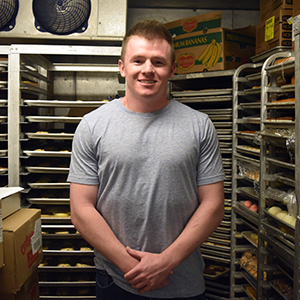 A taste of service that fits their interests and time constraints leads many students
to want to expand their Bennion Center involvement. This often happens through participation
in a student-directed program. Dozens of programs give students leadership opportunities
and help them meet the needs of community partners throughout the area.
A taste of service that fits their interests and time constraints leads many students
to want to expand their Bennion Center involvement. This often happens through participation
in a student-directed program. Dozens of programs give students leadership opportunities
and help them meet the needs of community partners throughout the area.
“We are able to reach a greater number of people. Less people have fallen through the cracks and more have people have reconnected with us thanks to the volunteers’ efforts.”
– Community Partner
That’s how one community partner described the impact of having Bennion Center students volunteering at that program. Working through 47 student-directed programs, University of Utah students made a profound impact on the programs and the people they served. Other community partners noted:
Student-directed programs are divided into six issue areas: Health and Ability, Education and Advocacy, Arts and Recreation, International Service, Social Justice, and Sustainability and Food Justice. Each issue area has a student coordinator and each program within that issue area has a student program director. Besides helping community partners expand their capacity, students themselves were impacted by their volunteer experience.“First of all, their attitude is always inspiring. We love having their help at screenings. They are always smiling and being personable with their clients. They do an awesome job at doing accurate screenings”
– Community Partner
“Our mission is to help people to step out of homelessness and back into the community and Bennion’s service helps break the cycle of illiteracy and poverty and helps kids feel more a part of the community.”
– Community Partner
“Volunteers created vital social interactions for their peers with disabilities.”
– Community Partner
“The ECG could not grow food without our amazing volunteers. Their work helps us future our mission to engage the campus community in sustainable and just food systems.“
– Community Partner
“Because of the services performed by BC students, it has given the Outreach Program the opportunity to expand to reach more girls within the state.”
– Community Partner
“They made our participants feel safe and important. They helped to build unity within the group and created a successful learning environment.”
– Community Partner
Numbers to note
- At the beginning of their community engagement, 28% of the students said they wanted to develop the ability to have a dialogue with others in a respectful manner.
- 33% percent of these same students said they wanted greater appreciation for people with different experiences or backgrounds than themselves.
- By the end of the service year, nearly 98% of the students said they were able to have respectful dialogues.
- 95% of students reported they gained greater appreciation for those with different backgrounds or experiences.
- 94% of students reported the Bennion Center community engagement opportunity had a positive impact on their future academic/career plans or goals.
- Roughly 95% of the students said they were more likely to volunteer in the future
because of this experience.
“I realized what a powerful catalyst service can be to bring people together.”
“This year as the Program Director for the Social Justice Gardens at Jackson Elementary School was both eventful and enlightening. This experience has taught me the great value in building community, the importance of communication, and how to serve as a more empathetic and reliable leader.”
– Student
“This past year has been truly wonderful. I have gained a new perspective, new relationships, and a greater understanding of the commitments necessary to be a successful leader. While it has not always been an easy job, it is certainly a rewarding one.”
– Student
“By working with Bennion Center I have learned about the different experience that people go through on a daily basis that we might not be aware. By serving others I feel like I can make a difference in how I view people. I am less likely to judge someone until I know their story. By working with the Bennion Center I am more willing to serve others and willing to put my time for others.”
– Student
“I first started volunteering, as most pre-meds do, just wanting to start recording hours. Friends for Sight was one of the first programs that I started with and could not be happier that I did. As I started volunteering with them I saw their vision and really became invested in it as well. When I saw how much of a difference I could actually make, I started taking on more responsibilities and eventually took the program director spot once it became available.”
– Student
“Moving forward, I know that I will be playing a part in the bettering of the community I am a part of, as well as global communities that are in need of assistance. I am 100% a different person than I was when I started at the U, and most of that is because of the volunteering I have done and the Bennion Center.”
– Student

7 Students; 600 Hours of Service
Service in a student-directed program or the First Year Serve Corps is a great way for students to grow in leadership capabilities. Bennion Center staff partners know that having strong student leadership is key to creating life-changing service opportunities for the Center as a whole. Staff partners select their program area student board representative very carefully. Among other characteristics, they’re looking for students who show leadership potential and a commitment to a community need. The 2016-17 Student Board took their roles seriously and worked on identifying best practices for the board, as well as creating a more meaningful board experience for future student leaders. Part of the role they designed pairs student board members with the Bennion Center’s advisory board. This allows students access to a mentor and helps them become more involved in Bennion Center policy, training and initiatives. The student board felt keenly their responsibility to make sure the Center is inclusive and that student leaders felt appreciated for their hard work. That led to the winter “Sno-cial” activity at the Service House where student leaders were treated to an evening of socializing and fun.
“…with the team work, we effectively share the responsibilities as well as having each other's back. Team work probably will be the experience I would love to carry on, improve more in my future career.”
– Student

13 Students; 1,055 Hours of Service
“I think about how I am continually impressed by the talents and passions contained in my nine residents, as these phenomenal students, all of different class standings, majors, and backgrounds, have come together to create a home for me and for one another, and I would genuinely consider them my friends and family. They do incredible work for our campus community to global communities, from volunteering with Special Olympics to Youthlinc to the American Chemical Society Student Chapter, just to name a few, and they share their unique experiences with our building in such giving ways.”
– Student
Diversity in majors, interests, and volunteer projects they participated in on their own was a hallmark of this year’s Service House residents. While each student was unique in interests and service, they all came together to make a difference in our community. House residents were united in their commitment to serve as individuals and as an entire house. The group held three Service House Dialogues. During these evening community learning events students first raised the question what are you getting out of your college education as they delved deeper into pedagogy and the college experience. The second event tackled volun-tourism and intention vs. impact. They also explored how the LGBTQ community is represented, or not represented, in the media. Besides organizing and hosting these forums, Service House residents participated in Saturday Service Projects, Project Youth, Officer’s Hollow Halloween carnival and other community engagement activities they supported individually. Three residents are returning to the Service House for the 2017-18 academic year and many other residents were selected as student leaders for Bennion Center programs.

77 Students, 19,706 Hours of Service, 10 Community Partners
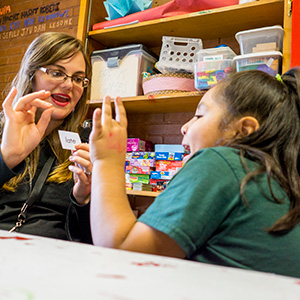 Utah Reads provides the vital link between one-on-one student help and knowledgeable
tutors who can help children improve their reading proficiency. Working with local
schools and University of Utah reading curriculum professionals, Utah Reads uses AmeriCorps
resources to fund tutoring help that changes lives.
Utah Reads provides the vital link between one-on-one student help and knowledgeable
tutors who can help children improve their reading proficiency. Working with local
schools and University of Utah reading curriculum professionals, Utah Reads uses AmeriCorps
resources to fund tutoring help that changes lives.
“Utah Reads was the perfect opportunity for me to increase my Civic Skills. I feel more confident in my ability to help others.”
– Student
“I grew up like these kids, therefore I am committed and know what they are going through. I know that everyone can succeed in life, they just need someone, whether it is a parent or a teacher, to believe in them.”
– Student
“Spending time and influencing the kids towards positive future goals has been nothing short of joyous. They've worked so hard and seemed to have fun along the way. This sort of service does more for them than I think any of us could understand. It's more than just tutoring--it is granting children with the chance to interact with people who are in higher education, who want them to go on and succeed.”
– Student

4,711 Students; 93,420 Hours of Service
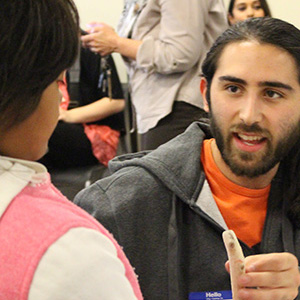 Community engaged learning combines the best of academia with the real-time civic
engagement. Last year students had the opportunity to choose from hundreds of courses
designed to stimulate scholarship and community service. The Bennion Center supports
faculty members designing these dynamic courses with technical and financial assistance,
as well as professional development and recognition.
Community engaged learning combines the best of academia with the real-time civic
engagement. Last year students had the opportunity to choose from hundreds of courses
designed to stimulate scholarship and community service. The Bennion Center supports
faculty members designing these dynamic courses with technical and financial assistance,
as well as professional development and recognition.
“My development as an engaged citizen grew from the Community Engaged Scholar classes and I used those lessons to volunteer in the American Chemical Society with an enlightened perspective. I asked questions about whom we were serving, thought about ideas that needed to be portrayed in a manner suitable for the specific audience, and collaborated with other students for activities. Interacting with many different individuals, I created new connections and learned from the community about the joys and struggles some of them were experiencing. Eventually, I built a strong foundation on the skill of working with others and understanding on a deeper level on providing service for the community.”
– Student
“Being more aware of social justice and the value of an individual, I can more capably and fearlessly speak up and speak out. It has become a part of my nature and I will continue to be active and to learn.”
– Student

7 Graduates; 47 Students; 9,870 Hours of Service
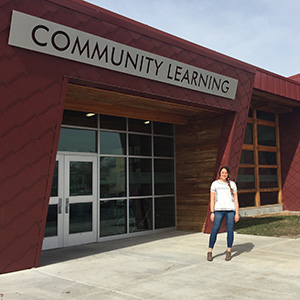 The Bennion Scholars program can be the pinnacle of a student’s Bennion Center experience.
Hundreds of hours of service spread over the course of a student’s college career,
capped with an integrated service project that serves the community in tangle ways,
prepare students for life-long civic engagement. After re-vamping the curriculum
in 2015-16 to focus on quality scholarship vs. the quantity of scholars in the program,
the Bennion Scholars continued to refine their program by instituting a peer mentorship
program. Instead of relying strictly on one staff partner, students were paired with
a member of the Scholars leadership team. The goal was to support and encourage students
as they progress through the program with peer-to-peer connections. Previously, for
some students their only contact with the Bennion Center was the Scholars’ staff partner.
Now students will work more closely with peers to strengthen their connection to the
Center as a whole and help them succeed in the Scholars area in particular. Community
partners are also expressing more interest in the program. More than a dozen different
agencies turned out for an event designed to help scholars find an organization with
which to work as part of their ISP – Integrated Service Project.
The Bennion Scholars program can be the pinnacle of a student’s Bennion Center experience.
Hundreds of hours of service spread over the course of a student’s college career,
capped with an integrated service project that serves the community in tangle ways,
prepare students for life-long civic engagement. After re-vamping the curriculum
in 2015-16 to focus on quality scholarship vs. the quantity of scholars in the program,
the Bennion Scholars continued to refine their program by instituting a peer mentorship
program. Instead of relying strictly on one staff partner, students were paired with
a member of the Scholars leadership team. The goal was to support and encourage students
as they progress through the program with peer-to-peer connections. Previously, for
some students their only contact with the Bennion Center was the Scholars’ staff partner.
Now students will work more closely with peers to strengthen their connection to the
Center as a whole and help them succeed in the Scholars area in particular. Community
partners are also expressing more interest in the program. More than a dozen different
agencies turned out for an event designed to help scholars find an organization with
which to work as part of their ISP – Integrated Service Project.
Numbers to note
- In the pre-civic engagement assessment in 2016, 68% of the Scholars surveyed felt they needed to work on building the ability to work collaboratively.
- Almost 44% felt they needed to develop the ability to have respectful dialogues with others.
- More than 98% of scholars said they volunteered less than three hours per week.
When Scholars were surveyed again in the spring of 2017:
- All of them reported having their collaborative skills increase.
- Almost 88% reported their work in civic engagement had helped them dialogue with others in a respectful manner.
- More than 94% of these students said their Scholars experience made them more likely to volunteer or engage in community service in the future.
“As an engineer, my passion relies on problem solving. As a human, I am unable to attend all the problems that have been addressed. One way to fix problems is to have people work on them. The more people who can help, the more problems we can solve. The idea of empowerment inspired me to help others by teaching them the skills to help them in the long run. Moreover, one of the most rewarding experiences is to inspire others by showing them why and how things are done.”
– Student
“Several years of working with non-profit organizations has taught me that the world is full of good people trying to do good things who are often unaware of each other's work. Rather creating new organizations, a lot good can be accomplished by reaching out to and collaborating with other groups who are working toward similar goals. It was a partnership between Headstrong TBI, Primary Children's Hospital and the Bennion Center that helped increase access to concussion recovery resources in 2016. This year, we will be adding the Brain Injury Alliance of Utah to that team.”
– Student

35 Students; 688 Hours of Service
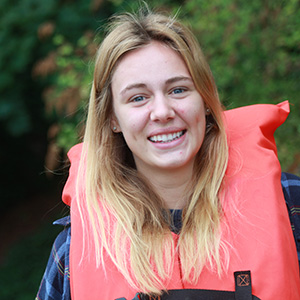 Thanks to the generosity of the University of Utah’s Alumni Association, three Bennion
Center students were able to participate in a summer fellowship experience. Shannon
Weaver selected the Easter Seals office in Seattle, Washington where she hoped to
not only serve people with disabilities but also better understand management and
leadership skills necessary to successfully run a non-profit organization. Madeleine
Bell chose to work with the New York Center for Children. This organization provides
free, comprehensive evaluation and therapy services for victims of child abuse and
their families. Hannah Hendrickson also chose to serve the Easter Seals organization
and focus on best practices for serving people with disabilities. All three women
spent six weeks working for and with their respective community partners, logging
their service hours and experiences. Here is some of what they reported:
Thanks to the generosity of the University of Utah’s Alumni Association, three Bennion
Center students were able to participate in a summer fellowship experience. Shannon
Weaver selected the Easter Seals office in Seattle, Washington where she hoped to
not only serve people with disabilities but also better understand management and
leadership skills necessary to successfully run a non-profit organization. Madeleine
Bell chose to work with the New York Center for Children. This organization provides
free, comprehensive evaluation and therapy services for victims of child abuse and
their families. Hannah Hendrickson also chose to serve the Easter Seals organization
and focus on best practices for serving people with disabilities. All three women
spent six weeks working for and with their respective community partners, logging
their service hours and experiences. Here is some of what they reported:
“These kids have caused me to contemplate resiliency and its power. This resiliency has taken a lot of work on the part of the child and is truly admirable, but I have also come to realize that it takes a village of super like mentors, therapists, and family to help these children heal. It is really powerful to think about how much can be accomplished by the help of others when given a safe space and time.”
– Madeleine Bell
“The purpose of Easter Seals is to change the way the world defines and views disabilities by making profound, positive differences in people’s lives every day. This experience has challenged my assumptions that individuals living with disabilities need a lot of help. Easter Seals believes in independence. Seeing this has allowed me to see how much someone with disabilities can do on their own.”
– Hannah Hendrickson
“My large personal takeaway from this fellowship was learning about the layers of management within a nonprofit. I feel that if I work for a nonprofit in my future, as I plan to do, I’ll have a better understanding of the importance of marketing, how it impacts fundraising, and the notion that employees will stay with an organization longer and feel more satisfied with their job if they feel appreciated. Seeing the HR director meet individually with employees at each of the CDC’s is something that I’ll never forget. In any nonprofit management position, or less specifically any leadership position, I’ll carry the skills I gained from seeing the director interact with her employees.”
– Shannon Weaver
The Helping Hands scholarship benefited 20 Bennion Center student leaders with one semester awards of $500. Funded by endowments, the scholarships helped students cover unexpected or emergency costs and kept them progressing toward their goal of graduation.

199 Students; 11,596 Hours of Service; 17 Trips
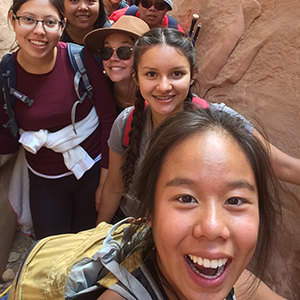 The trajectory of students serving through the Bennion Center often leads to an Alternative
Breaks experience. This program offered 17 trips throughout the year, four in the
fall, 11 spring trips and two weekend trips. The weekend trips were designed for students
who could not take time for an entire week and to provide a unique reflection experience
for first generation, or First Gen, students. Despite a decision by the Associated
Students of the University of Utah to no longer help fund the program, almost 500
students were able to take advantage of the Alt Breaks experience. While students
were responsible for the most part for paying their own trip costs, staff partner
Laura Schwartz and her student leadership team worked zealously to find the lowest
possible travel prices while simultaneously working to promote the program campus-wide
to increase student and staff involvement. They collaborated with the Outdoor Adventures
program to teach basic canyoneering on the First Gen trip. And the office of Disability
and Access Services provided two interpreters so that a student and staff partner,
both of whom were hearing impaired, could participate in a trip. It’s this kind of
bridge building that students and staff partner Laura Schwartz plan to continue into
the coming year.
The trajectory of students serving through the Bennion Center often leads to an Alternative
Breaks experience. This program offered 17 trips throughout the year, four in the
fall, 11 spring trips and two weekend trips. The weekend trips were designed for students
who could not take time for an entire week and to provide a unique reflection experience
for first generation, or First Gen, students. Despite a decision by the Associated
Students of the University of Utah to no longer help fund the program, almost 500
students were able to take advantage of the Alt Breaks experience. While students
were responsible for the most part for paying their own trip costs, staff partner
Laura Schwartz and her student leadership team worked zealously to find the lowest
possible travel prices while simultaneously working to promote the program campus-wide
to increase student and staff involvement. They collaborated with the Outdoor Adventures
program to teach basic canyoneering on the First Gen trip. And the office of Disability
and Access Services provided two interpreters so that a student and staff partner,
both of whom were hearing impaired, could participate in a trip. It’s this kind of
bridge building that students and staff partner Laura Schwartz plan to continue into
the coming year.
“My increased involvement with social justice since a freshman can be credited to my Alternative Fall Break experience. I know the Bennion Center has made and continues to make a huge impact on me. I will always remember my experiences here.”
– Student
“This trip has helped me be a better critical thinker and a better volunteering person. My leadership skills have definitely increased with this trip.”
– Student
“I've always had hopes of empowering communities in the future, but this trip turned those hopes into goals.”
– Student
“I learned so, so much and am incredibly excited to not let the trip end here. I will work to share my experiences on ASB as a form of advocacy acontinue the conversations we've been having. I'm also so excited that there is still so much I don't know so there is everything to learn.”
– Student

Cuba: 30 Students; 1,320 Hours of Service
Costa Rica: 18 Students; 560 Hours of Service
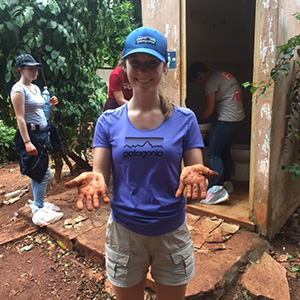 The Bennion Center offers students a unique opportunity to not only travel abroad
but to experience their destination through the lens of global community engagement.
The Bennion Center offers students a unique opportunity to not only travel abroad
but to experience their destination through the lens of global community engagement.
“One of the things that I feel like I learned, and came to appreciate the most, was the unique type of people that Cubans are and the love and pride they have for their country. After speaking with my host family, it was obvious that although many Cubans had some complaints about their government or way of life, overall they were happy and satisfied with the life they had lead and the opportunities that had been given to them. More than anything, however, they wanted a better relationship with the United States and its people.”
“At times, Cuba felt like a country that has melded many different time periods into one. In Old Havana, Spanish colonial influence from hundreds of years ago dominated the landscape. At other times, the Cuban Revolution and the Cold War felt as if it still being fought, with political messages plastered on street walls and billboards. Finally, the fashion styles and culture of the Cuban people jolted you back into the modern world with Reggaeton thumping in the background. It was truly a unique experience to be able to absorb all of this into one trip.”
“As I looked at the ocean from the Magic Flute balcony I marveled at the fact that these two once-feuding countries are only 90 miles apart. To get myself to see perspective on that, I remembered that 90 miles is only a little more than the distance between Salt Lake City and Logan, UT. It was not the distance that drove these two countries apart; it was the inability of the leaders to step into the others’ shoes.”

10 Students; 284 Hours of Service
The Comm Team captured the Bennion Center’s history on video and social media, using digital formats on multiple platforms to help students find volunteer opportunities and promote the Center to the general public.
KSL Television featured the Bennion Center in a special 30th anniversary profile. Local media chose to cover Bennion Center activities more than 20 times, including stories on students work with refugees, homelessness, and the Alternative Breaks program.
Social media followers grew to 1,775 Facebook likes, 951 Twitter followers and 656 Instagram followers. Each of these media formats were monitored and updated by a student leader from the Comm team who worked to cross-promote other worthy service endeavors on campus and in the community.
“I feel like I have a greater understanding of other people now. I love it!”
– Student

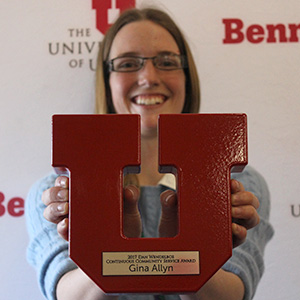 Deberah Hair, Student Affairs Diversity Certificate of Training
Deberah Hair, Student Affairs Diversity Certificate of Training
Jennifer Jones, Student Affairs Diversity Certificate of Training
Kimberley Mangun, University Teaching Grant $2400.00
Laura Schwartz, Undergraduate Studies and Student Affairs Beacon of Excellence Award
Bryce Williams, Community Foundation of Utah- Enlightened 50 (E-50) Award, July 2016
Bryce Williams. Student Affairs Diversity Council, Student Affairs Diversity Council Certificate of Training
Bryce Williams, West High Alumni Association's Outstanding Alumni in the Community, October 2016
2016 – 17 NASPA Lead Initiative Institution
Salt Lake County Aging and Adult Services – In Recognition of Outstanding Volunteer Service to the Senior Community and promoting healthy communities through the delivery of Meals on Wheels

To fulfill our commitment to developing active citizenship on campus and in the community, the Bennion Center provides opportunities for community education on topics of interest to students and the general public. During the 2016-2017 academic year Bennion Center students organized the following community education events: proposed Bears Ears national monument; Rio Grande neighborhood & homelessness; immigration & executive orders; pedagogy and getting your money’s worth from college; volun-tourism; and LGBTQ Community and Media Representation. Some of these forums were done in conjunction with the Hinckley Institute of Politics or initiated by the Service House residents or Bennion Scholars. More than 200 students and community members participated in these issue education events.
“The Bennion Center changed my life and really helped my find what I want to do in the future and love doing it.”
– Student
